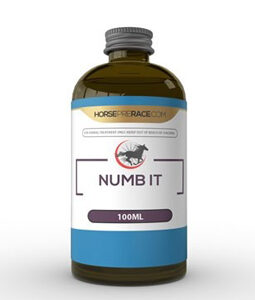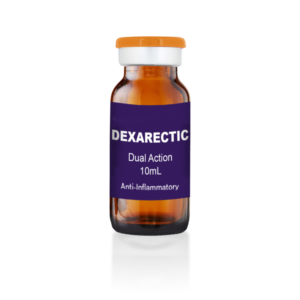Dexamethasone injection shows a real potentiation of the anti-inflammatory effects of isolated drugs.
Thanks to phenylbutazone, there is a strong inhibition of the action of the enzyme cyclooxygenase ) in the production of mediators of inflammation. Dexamethasone, on the other hand, inhibits the expression o inhibiting the transcription of the relevant gene and, therefore, reduces the generation of prostaglandins responsible for the symptoms of inflammation.
Recommendation
It is indicated as an anti-inflammatory, analgesic and antipyretic. It acts on arthritis, tendonitis, rheumatism, congestive processes hyperthermia, heat stroke and inflammatory complications of traumatic or various microbial conditions
How to use Dexamethasone injection
Adult horses: 3 to 4 ml for every 100 kg of body weight, by slow intravenous route, every 24 or 48 hours.
Foals: 1 to 2 ml for every 50 kg of body weight by slow intravenous route every 24 or 48 hours.
Cattle: 1 to 2 mL for every 100 kg of body mass, by deep intramuscular route, every 48 hours.
Pigs: 0.50 to 1.50 mL for every 50 kg of body weight, intramuscularly (single dose).
Dogs: 1 mL for every 15 kg of body weight, intravenously slowly, daily. The maximum daily dose should not exceed 800.00 mg.
Duration of treatment: Use the highest doses for the first 48 hours and then the dose is gradually reduced to a maintenance level and is
maintained at the lowest level capable of achieving a desired clinical response, treatment varies from 3 to 14 days (average of 7 days) in horses and 3 days in horses. Dexamethasone injection
cattle and dogs.
Precaution
Prefer intravenous injections to intramuscular administration as phenylbutazone may cause irritation at the application site.
Inject slowly intravenously at the rate of 10 mL every 30 seconds.
Phenylbutazone cannot be used in animals intended for human consumption. dexamethasone
against indication
The use of corticosteroid preparations in acute infectious conditions should be avoided
When used in non-acute infectious conditions, treatment should be associated with bactericidal antibiotics rather than bacteriostatics.
In general, corticosteroids are contraindicated in viral infections and in late pregnancy, when they can induce labor.
They should also not be administered to animals that are suffering from renal, cardiac and hepatic insufficiency, gastric ulcer and that present hypersensitivity to the components of the formula. Its use is not recommended in animals with diabetes mellitus, osteoporosis and those with hematocytological alterations (aplastic anemia, leukopenia, agranulocytosis, thrombocytopenia). Do not apply to newborn animals.
drug interaction
There are risks of drug interactions occurring when phenylbutazone is administered with other non-steroidal anti-inflammatory agents, as they have a similar mechanism of action (inhibition of cyclooxygenase) and may cause an increase in the occurrence of adverse effects.
Store in a dry and cool place, protected from light, out of reach of children






Reviews
There are no reviews yet.